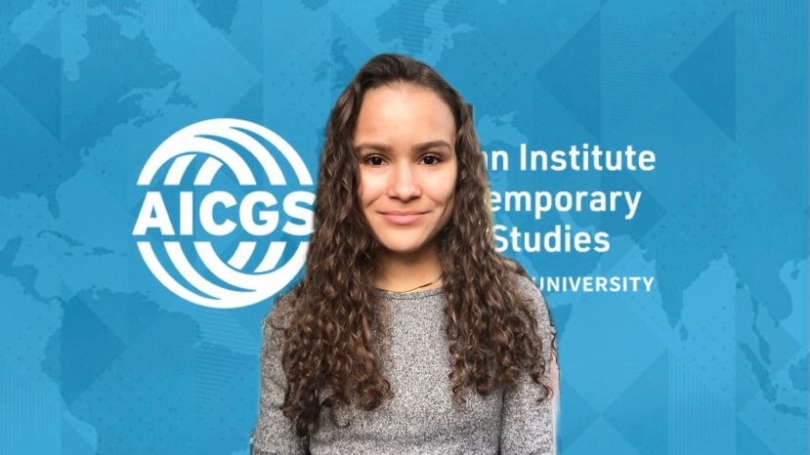
- Public Policy
- Leadership
- Funding
- News & Events
- About the Center
Back to Top Nav
Back to Top Nav
Back to Top Nav
Back to Top Nav
Tahlia Mullen '22 interned at Contemporary German Studies during the 2021 winter term. The following is an excerpt from her internship report.
The American Institute for Contemporary German Studies is a foreign policy think-tank associated with Johns Hopkins University. They specialize in issues facing the German-American relationship by releasing articles, participating in speaking events and forums, and hosting a podcast focused on transatlantic politics. As a government major on the international relations track with a particular interest in Germany and the EU, my internship at AICGS provided the opportunity to dive deeply into issues of great personal intrigue. I had the opportunity to assist and participate in all manner of research projects. All the while, I was exposed to the expertise of AICGS staff who include college professors, retired foreign service officers, and German immigrants.
Throughout my time at AICGS, I prepared weekly briefings on the topics of defense and immigration, researched and wrote reports for staff that informed the creation of website content, and helped staff prepare for events and interviews. Additionally, I had the opportunity to conduct research on topics of my own choosing and to write my own blog posts. Writing my own blog post was one of my favorite experiences during this internship. The blog post I wrote compared the structure and management of the Texas and German energy grids and suggested that Texas could strengthen its own grid by implementing practices proven successful overseas. Also, I helped with administrative tasks, including managing the organization's email and a contact database. The staff at AICGS made every effort to stay in close contact. I participated in staff meetings every Monday, Wednesday, and Friday morning. I also met with members of the senior staff one-on-one to discuss their lives and careers, to ask questions, and accept advice informing my own ambition to pursue a career in the transatlantic policy sphere. One of my major takeaways is that you get out what you put into an internship. Although our staff reached out to me regularly for help, I found it was equally important for me to offer help in areas that interested me and where I felt like I could contribute meaningfully.
This internship has reaffirmed my interest in transatlantic policy issues. Although I ultimately want to pursue a career within the US government, I could see myself working for another non-partisan research organization such as AICGS for a period of time. Having the opportunity to research and share significant policy findings with the greater world while being immersed in an environment involving such interesting and well-informed individuals has been tremendously enriching. I would like to thank the Nelson A. Rockefeller Center and (Insert fund) for allowing me to take on such an amazing opportunity.
The Rockefeller Internships Program has funding for Dartmouth undergraduate students to help defray the cost of living expenses associated with a full-time, unpaid, leave-term internships in the fields of public policy, public affairs, and social entrepreneurship.